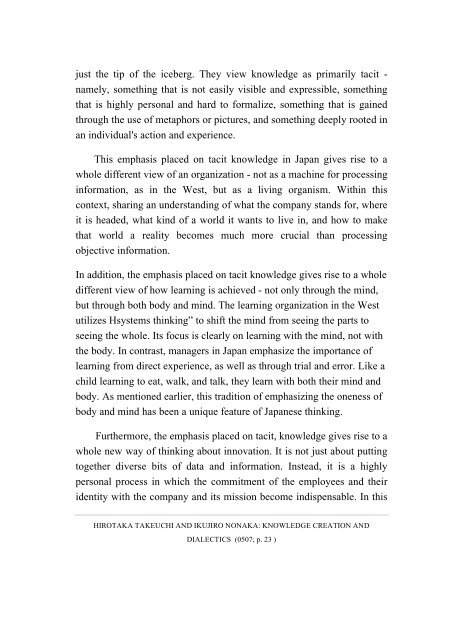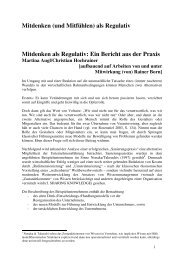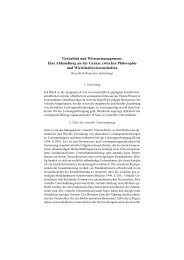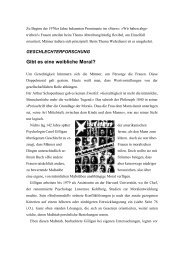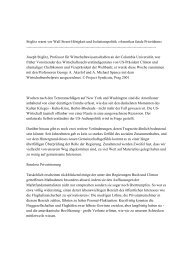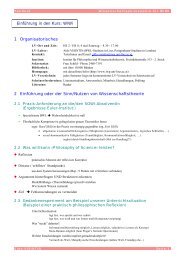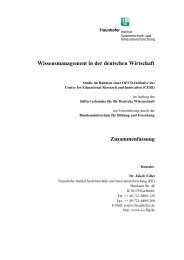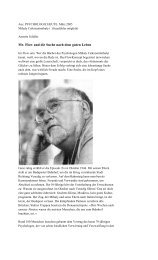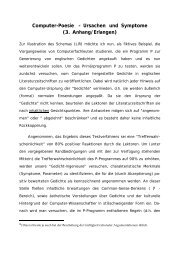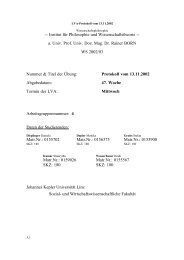KNOWLEDGE CREATION AND DIALECTICS
KNOWLEDGE CREATION AND DIALECTICS
KNOWLEDGE CREATION AND DIALECTICS
You also want an ePaper? Increase the reach of your titles
YUMPU automatically turns print PDFs into web optimized ePapers that Google loves.
just the tip of the iceberg. They view knowledge as primarily tacit -<br />
namely, something that is not easily visible and expressible, something<br />
that is highly personal and hard to formalize, something that is gained<br />
through the use of metaphors or pictures, and something deeply rooted in<br />
an individual's action and experience.<br />
This emphasis placed on tacit knowledge in Japan gives rise to a<br />
whole different view of an organization - not as a machine for processing<br />
information, as in the West, but as a living organism. Within this<br />
context, sharing an understanding of what the company stands for, where<br />
it is headed, what kind of a world it wants to live in, and how to make<br />
that world a reality becomes much more crucial than processing<br />
objective information.<br />
In addition, the emphasis placed on tacit knowledge gives rise to a whole<br />
different view of how learning is achieved - not only through the mind,<br />
but through both body and mind. The learning organization in the West<br />
utilizes Hsystems thinking” to shift the mind from seeing the parts to<br />
seeing the whole. Its focus is clearly on learning with the mind, not with<br />
the body. In contrast, managers in Japan emphasize the importance of<br />
learning from direct experience, as well as through trial and error. Like a<br />
child learning to eat, walk, and talk, they learn with both their mind and<br />
body. As mentioned earlier, this tradition of emphasizing the oneness of<br />
body and mind has been a unique feature of Japanese thinking.<br />
Furthermore, the emphasis placed on tacit, knowledge gives rise to a<br />
whole new way of thinking about innovation. It is not just about putting<br />
together diverse bits of data and information. Instead, it is a highly<br />
personal process in which the commitment of the employees and their<br />
identity with the company and its mission become indispensable. In this<br />
HIROTAKA TAKEUCHI <strong>AND</strong> IKUJIRO NONAKA: <strong>KNOWLEDGE</strong> <strong>CREATION</strong> <strong>AND</strong><br />
<strong>DIALECTICS</strong> (0507; p. 23 )


